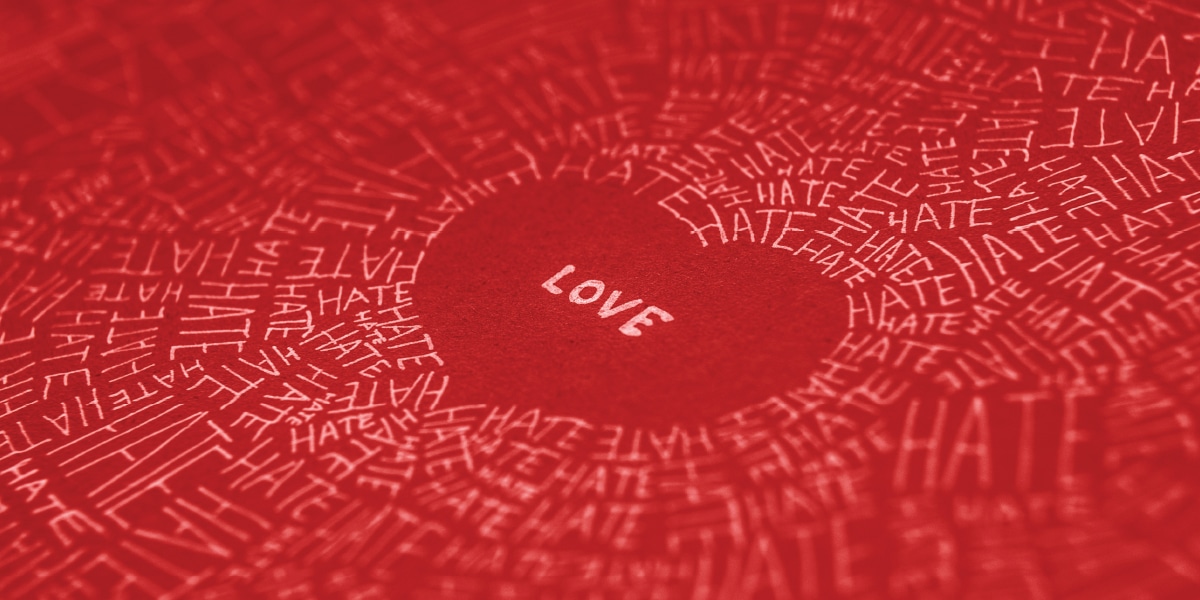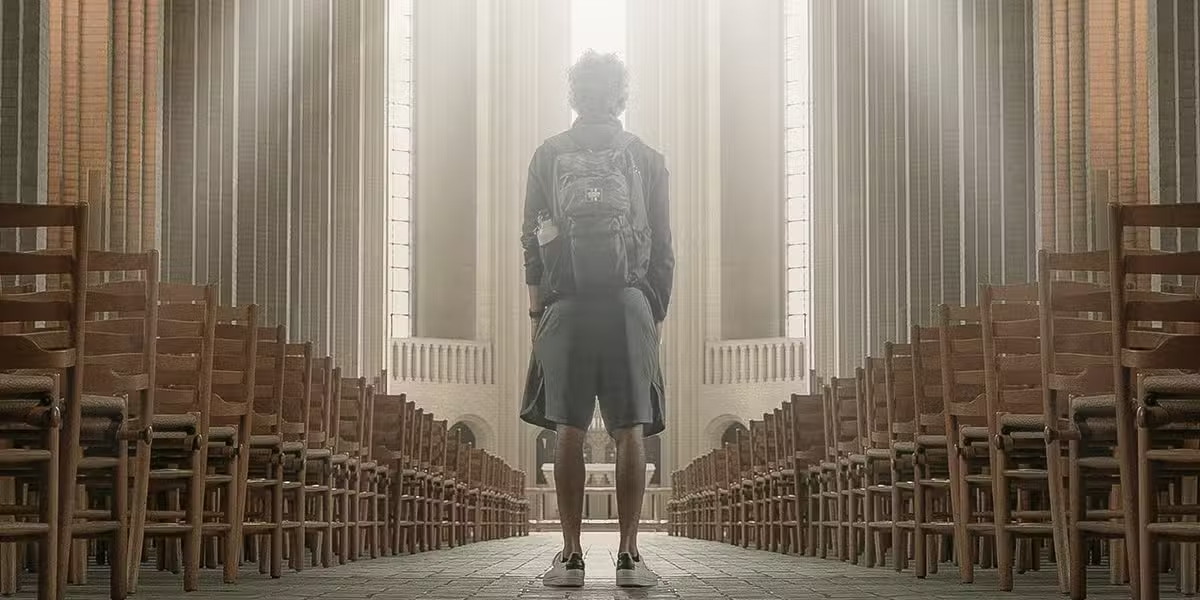The time-honored practice of labeling and excluding those who differ from us is eating away at our Christian call to love one another.
“It doesn’t take a declaration, or an invasion, to start a war, all it takes is an ‘us’ and a ‘them.’ And a spark.” —Ada Palmer
On the morning of October 14, 2023, in Plainfield, Illinois, Hanaan Shahin, 32, answered a knock at her apartment door. On the other end was her landlord, Joseph Czuba, 71, who authorities claim stabbed the Palestinian-American mother a dozen times. Fending him off, she hid in a bathroom and called 911. Czuba is alleged to have then attacked Shahin’s young son, Wadea al-Fayoume. The motive, it is believed, was anger over the Israeli-Hamas War that broke out the week before.
Wadea died from his injuries: 26 stabs wounds in all. He was 6 years old. Czuba has pleaded not guilty.
This strain of ethnic violence is not a 21st-century invention, but it certainly has a foothold in 2024, and it seems to escalate around national elections. According to a report by the Leadership Conference Education Fund (LCEF), anti-Muslim hate crimes peaked during the lead-up to the 2016 presidential election—the highest recorded numbers since 2001. “From 2020 to 2021,” the report states, “the [American Muslim] community was subjected to a 40-percent increase in reported hate crimes.”
Hatred is not only growing—it’s diversifying. The Jewish, Asian, Sikh, and LGBTQ communities have charted similar rises in hate crimes against them, the LCEF report shows. Even the disabled have been targeted. The second half of this year, experts warn, could be one of the deadliest on record.
We have a champion of peace in our canon of saints to go by. Francis of Assisi, viewed by many as the lovable “birdbath saint,” lived a much more complicated, radical life than Catholic folklore allows. And this itinerant from the Middle Ages can offer a model of peace for our own century.
The Saint and the Sultan
“The sultan . . . tried to bend Francis’ mind toward the riches of the world. But when he saw that Francis most vigorously despised all these things . . . he was filled with the greatest admiration, and he looked upon him as a man different from all others.” —St. Francis of Assisi: Omnibus of Sources
I have long admired how St. Francis’ love for God led him to caves for solitude or the Crusades for sermonizing. He seemed to need both action and inaction to live out his faith. In 1219, he and a companion traversed a bloody war to preach the Gospel to Sultan Malik al-Kamil and his men in Damietta, Egypt. Perhaps Francis had his heart set on martyrdom. But something much different happened. During the two weeks he was in Egypt, the sultan tried to tempt his visitor to abandon poverty in favor of material riches; the preacher invited his Muslim host to embrace Christianity. The two men were at an impasse, but a friendship took root. Their differences did not mean division.
Imagine the logistics and the dangers Francis and his companion had to navigate to bring his message of peace—especially to a man from another culture. Today, allegiance is defined by your political party. People won’t cross an aisle for solidarity let alone an ocean for peacebuilding.
Aggression and division, reports show, are growing. According to a 2023 report by the Anti-Defamation League (ADL), last year saw a record number of White supremacist propaganda incidents (7,567 cases), a 12 percent increase from 2022. The ADL’s report also showed a 63 percent increase in White supremacist events in 2023 as opposed to the year prior.
What is needed for deliverance is conversion, and that theory resonates with Pope Francis. “Avoiding evil and learning to do good: this is the rule of conversion,” he said in 2017. “[Conversion] is a journey. It’s a journey of avoiding and of learning.” Conversion isn’t easy. For it to take root there should be an internal struggle, a shift in our foundation. St. Francis understood that. His namesake continues to push the agenda of peace and understanding. But it is up to us to make it happen.
One Body
“For in one Spirit we were all baptized into one body . . . and we were all given to drink of one Spirit.” (1 Cor 13)
Through the end of this year, St. Anthony Messenger will be presenting a short article—like the one you’re reading—on a specific issue facing American Catholics, such as immigration, election integrity, ecological justice, and peace. But the editors felt that the issue of “othering,” of labeling, excluding, or even harming those whom we define as different or less than, should kick off the series.
As the 2024 election draws closer and tempers flare, let us pray that the message above from St. Paul might steady our hearts and remind us of our Christian responsibility to love all members of the human family: imperfect as we are though loved perfectly into being. It’s that simple. And it’s that challenging.
Let us pray that cooler heads prevail and that we, as a bruised but beloved human family, may have the grace to raise our glasses as we “drink of one Spirit.”









2 thoughts on “I’d Like to Say: We Need to Stop ‘Othering’”
I’m not Catholic, but I love the message here. Any time we other, we make it excusable to treat “them” in ways that are unacceptable toward people like “us,” and we make ourselves idols in the process. Jesus never said to love our neighbors … unless they’re different … unless they disagree with us … unless. Jesus didn’t just love the “right” people. He loved the ones who crucified Him and abandoned Him. He loved everyone.
Good article!
So timely and I’m thankful to have found this blog. Thank you to our religious orders who show us the way to peace. Praying for peace in our country. I wish everybody could read this..